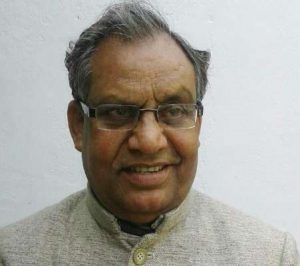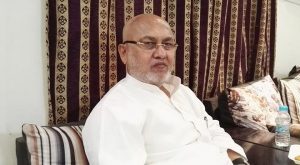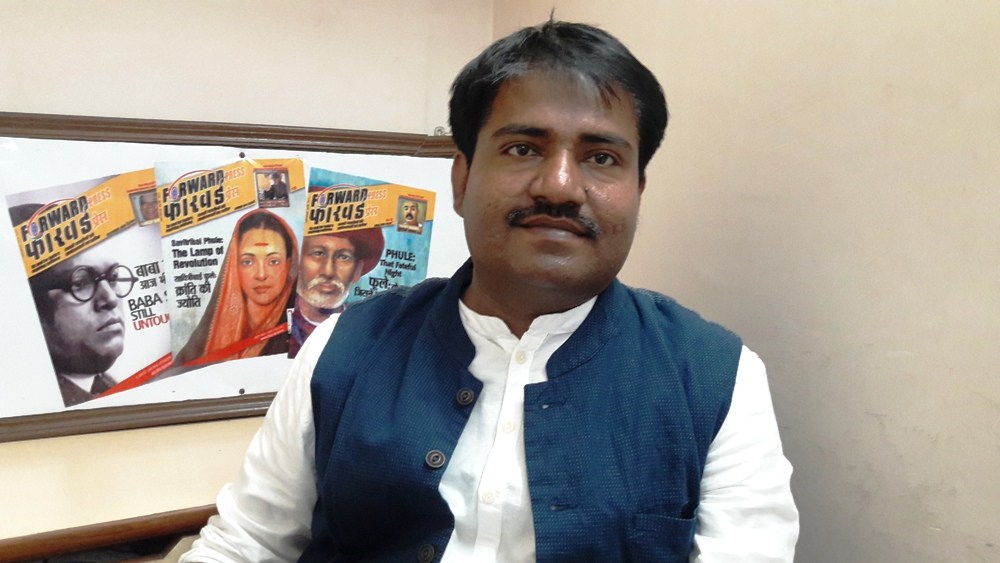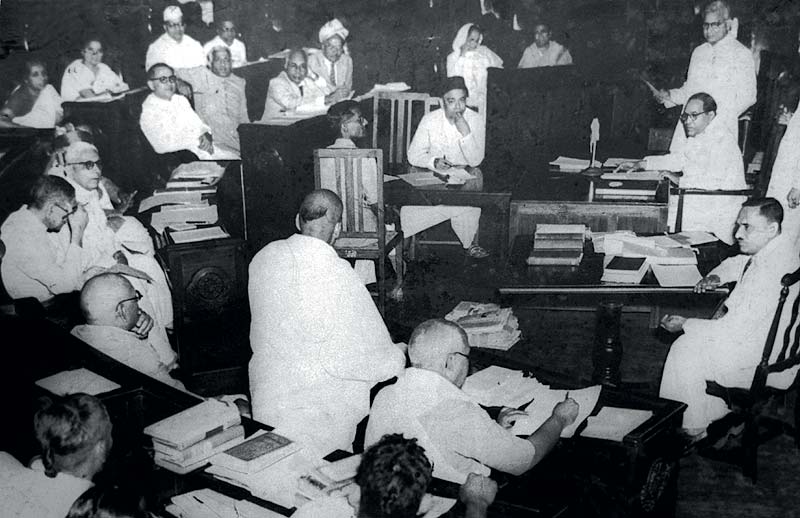Jannayak Karpoori Thakur (24 January 1924 – 17 February 1988)
Do you know that on the day Jannayak Karpoori Thakur became chief minister of Bihar for the first time, his father was caned by a feudal lord in their village? The reason? His father had showed up late to give the feudal a shave. And you will also be surprised to know that despite serving as the chief minister and having been the long-serving leader of opposition in Bihar, the balance in his bank account was less than Rs 500.
At the same time, nothing could not make him budge from his decisions. Abuses were rained on the female members of his family when he implemented reservations for the backward classes in pursuance of the Mungeri Lal Commission’s recommendations. What sort of man was Karpoori Thakur, who remained unaffected even by acerbic attacks of his opponents? He was firm as far as his ideas and decisions went.
How was his early life? What was the milieu from which he rose to the very top of Bihar’s polity? It was in search of answers to these questions that in 2016, I reached his village Pitaunjhiya (now Karpoori Gram). Brahmins and Rajputs also live in the village and some of them were his neighbours as well. When I inquired about the place where Jannayak (People’s Hero) lived, I was directed to a house at one end of the village. It was supposed to be a museum – but only on paper. His family members lived there. I was surprised to see that the house was pucca. His neighbours told me that the house was kutcha as long as “Jannayak” was alive and had a clay-tile roof.

Coincidentally, Jannayak’s son and Rajya Sabha member Ramnath Thakur was in the village that day. I only found out when I phoned him. “I am at my home in the village. You can come over,” he said. The neighbours told me that Ramnath Thakur had got a bigger house built. It was on the main road at another end of the village. And it was really a big house. Many people were seated inside. Ramnath Thakur told me that he had got there a little earlier. I told him that I had been to his old house and requested him to share his childhood memories with me. He said that he and all his sisters and brothers were born in that house.
He told me about his sister’s marriage. At the time, his father was the chief minister. “My sister was to get married to Dr Ramesh Chandra Sharma from Ranchi. Initially, it was decided that the wedding would be held at Deoghar temple. But later our relatives opted for the village itself. Father was reluctant but agreed later.
“My father reached Pithonjhiya five days before the wedding. He left his official car just outside the village. Directions had already been issued to government officials that they should not visit the village till the wedding was over. He also banned the use of the Bihar government’s chopper. He knew that his ministers would have liked to attend the wedding. But he did not invite any of them,” he said.

While going around the village with Ramnath Thakur, I got to know of a distressing incident. He told me that when his father became the chief minister for the first time, his grandfather was thrashed with a cane “in this kothi [house]” while pointing towards a big house in a state of disrepair. I was taken aback. He explained. To celebrate his father becoming the chief minister, people from the village and nearby villages had reached their ancestral home. “Grandfather became busy entertaining them. That delayed his regular visit to the home of the local landlord. At the time, my grandfather did haircutting and shaving [the family belonged to the ‘nai’ or barber caste]. The local feudal lord caned his grandfather for the delay.
“My father came to know of the incident. He reached the village. Police surrounded the kothi. Everyone was sure that the feudal would be arrested. A big crowd had gathered there. But my father approached the feudal lord and told him, “My father has grown old. If you let me, I will give you a shave.”
Earlier, I had another opportunity to write about Karpoori Thakur. That was in 2009 when I was working for Dainik Aaj. My editor Deepak Pandey had told me that special content on Jannayak was to be published on 24 January. He asked me to get enough material to fill a page. This was going to be a challenge. I had just two days to gather details on Jannayak and write about him.
But the work had to be done and I decided to do whatever I could. My editor guessed my problem. He asked me to go and meet Baba. “If Baba helps you, your job is done,” he said. By Baba he meant Abdul Bari Siddiqui. Siddiqui is one of Bihar’s senior political leaders. I went to his residence to meet him. This was going to be my first meeting with him. I was asked to wait in the courtyard. His associates, Mithilesh Yadav and Sanjay Kumar, provided some details when I told them the purpose of my visit. I was told that Siddiqui was one of Karpoori Thakur’s confidants.
Baba met me shortly. I mentioned my editor’s name. He said, “Let me show you something first.” He took me to a room. It was his personal library. Two photographs were hanging there – one was of Jannayak and the other of Siddiqui. He told me that he had clicked Jannayak with his own camera. Then he showed me the cameras he owned.

He continued narrating his memories of Karpoor Thakur. I was taking notes. Suddenly, he stopped. With a smile, he handed a bank passbook to me. “This will serve your purpose,” he said. It was the passbook of Jannayak’s bank account. The last entry was from August 1987. The total balance was less than Rs 500.
Relating an instance of Jannayak’s simplicity, Siddiqui told me that he once accompanied him to Delhi. The day was spent in meetings and Siddiqui was exhausted. They reached Bihar Niwas and Siddiqui thought that Jannayak would now take rest. It was already quite late in the night. Siddiqui lay on Jannayak’s bed and fell asleep. When he woke up in the morning, he found Jannayak sleeping on the floor. As he was relating this incident, tears welled up in Siddiqui’s eyes.
Such was Jannayak Karpoori Thakur.
(Translated by Amrish Herdenia from the original Hindi published on 24 January 2020)





